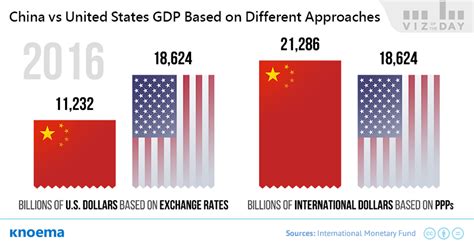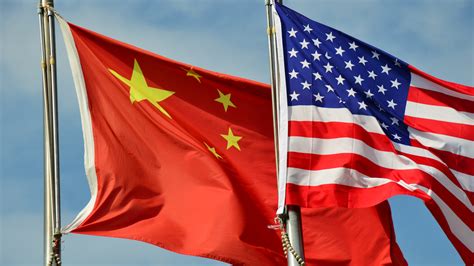are china and the us on good terms ,U.S. Relations With China ,are china and the us on good terms, China's National Bureau of Statistics reported $18.8 trillion, a number almost certainly inflated. Moreover, China is the trade-surplus economy. America's merchandise trade . $1,856.00

In 2025, the state of U.S.-China relations remains one of the most critical, complex, and contentious issues in global geopolitics. The two largest economies in the world are intertwined through trade, finance, technology, and geopolitics, but the question remains: Are they on good terms? Over the years, both nations have experienced moments of cooperation and confrontation, and their economic relationship continues to evolve. This article explores the various facets of this dynamic, examining U.S. views on trade with China, the U.S.-China trade war, tariffs, and the ongoing dialogue between these two global powers.
Trade with China: U.S. Views in 2025
As of 2025, U.S. public opinion on China remains sharply divided. While some sectors of the American population view China as a valuable trading partner and economic opportunity, others are deeply concerned about China’s growing influence and the impact of trade imbalances. The trade relationship between the U.S. and China has been central to the broader geopolitical rivalry, and its effects have been felt across many industries.
According to recent surveys, many Americans believe that China benefits more from the trade relationship, especially following years of U.S. trade deficits with China. Yet, opinions about tariffs on China remain mixed. Those who assert that China gains more from the relationship are often just as likely to think that tariffs imposed on China would either benefit or harm the U.S. equally. This paradox is reflective of the complicated nature of U.S.-China trade. For instance, some argue that tariffs on Chinese goods could lead to higher prices for U.S. consumers, harming the American economy. On the other hand, proponents of tariffs contend that they could serve as a necessary measure to correct the trade imbalance and protect American jobs and industries from unfair competition.
In 2025, the U.S. government remains divided on this issue, with some pushing for continued tariff policies to level the playing field, while others argue that engagement and negotiation are more effective methods of achieving a fairer trade deal.
China Can't Win a Trade War Against the U.S. for One Simple Reason
Many analysts agree that while a trade war with the U.S. is harmful to China, Beijing cannot win such a war in the long term. This is largely due to the relative size and diversity of the U.S. economy. Unlike China, the U.S. economy is less reliant on exports, which gives it a greater degree of resilience when facing economic conflict.
China, by contrast, is far more dependent on foreign trade. As of 2025, it remains the world’s largest exporter, and any trade disruptions significantly impact its industrial and manufacturing sectors. Moreover, the Chinese government faces increasing pressure to maintain stable growth, especially in the face of demographic challenges and a rapidly aging population. While China’s vast consumer market has helped to cushion some of the trade war's effects, its economic future is still very much tied to its relationship with foreign markets, particularly the U.S.
Thus, despite its growing technological prowess and increasingly assertive foreign policy, China remains vulnerable to a prolonged economic conflict with the U.S. While China can retaliate with tariffs and other measures, its ability to outlast the U.S. in a sustained trade war remains uncertain, given that it depends more on exports than the U.S. does.
U.S. Relations with China: The Status Quo
In 2025, the diplomatic relationship between the U.S. and China has entered a period of cautious pragmatism. Although both countries continue to clash on issues like intellectual property, military presence in the South China Sea, and human rights concerns in Xinjiang, both sides recognize the necessity of maintaining a functional relationship.
One of the key issues is Taiwan, which remains a flashpoint in U.S.-China relations. While the U.S. continues to support Taiwan's de facto independence, it has also pursued a policy of strategic ambiguity, aiming to prevent direct conflict with China over the island. China's government, on the other hand, sees Taiwan as a core issue, and any move by the U.S. to undermine its claim over Taiwan is viewed as a red line.
While trade is central to the bilateral relationship, diplomatic engagement is increasingly critical. Both sides have acknowledged the importance of maintaining lines of communication, as evidenced by the periodic high-level meetings between U.S. and Chinese officials. Despite their differences, there is recognition in both Washington and Beijing that open dialogue helps to manage tensions and prevent escalation into conflict. However, the strategic competition between the two countries is unlikely to dissipate anytime soon, and it remains an area of significant concern for policymakers.

are china and the us on good terms 1972 Rolex Submariner Ref. 5513 - HODINKEE Shop. Why This Watch Matters There is nothing better than a beautifully aged Rolex Submariner. The Full Story Introduced to the Rolex catalog in 1962, the ref. 5513 Submariner remained in continuous production until 1989, which makes it one of the most recognizable Submariners in the eyes of vintage .
are china and the us on good terms - U.S. Relations With China